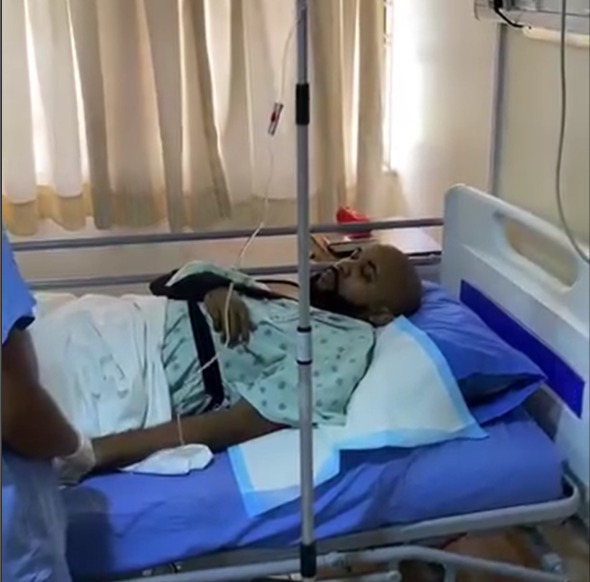Susan Schneider Williams, the widow of late comic and actor Robin Williams, once called Lewy body dementia “the terrorist inside my husband’s brain.”
While it afflicts more than one million Americans, according to the National Institute of Neurological Disorders and Stroke, it is regularly overshadowed by Alzheimer’s disease and Parkinson’s, often leading to misdiagnoses in patients with Lewy body dementia.
Media magnate Ted Turner, who announced his diagnosis in 2018, was mistakenly diagnosed with bipolar disorder, while Williams was misdiagnosed with Parkinson’s disease.
In the wake of Williams’ death in 2014 and “Robin’s Wish,” the documentary about Williams’ last years, awareness of the disorder has spiked in recent years. But it’s a complicated, often misunderstood neurological disorder, requiring years of work with a neurologist to even get diagnosed. Here are some common questions about LBD, answered.
What is Lewy body dementia, and what causes it?
Lewy body dementia is a type of progressive dementia. According to Norma Loeb, the founder of the Lewy Body Dementia Resource Center, it is the second most common form of progressive dementia behind Alzheimer’s.
Excess deposits of the protein alpha-synuclein, known as Lewy bodies, clump up inside neurons, causing damage to certain parts of the brain and, as a result, a decline in cognition and movement.
There are two forms of Lewy body dementia: Dementia with Lewy bodies (DLB) and Parkinson’s disease dementia. The early warning signs of both are key: DLB takes place when people develop cognitive issues, including memory less, while patients with Parkinson’s disease dementia initially develop movement issues such as muscle stiffness, gait and tremors.
Over time, their symptoms will become more and more similar. Other symptoms of LBD include depression, anxiety, sleep disorders, insomnia, and hallucinations. Patients often develop hallucinations of people or small animals, Loeb said.
Individuals with LBD may live anywhere between two to 20 years from diagnosis to death, according to the National Institute of Neurological Disorders and Stroke.
Why is it difficult to diagnose Lewy body dementia?
Lewy body dementia’s similarities to Alzheimer’s and Parkinson’s pose a challenge for doctors.
Because early symptoms of DLB are similar to Alzheimer’s, and Parkinson’s disease dementia akin to Parkinson’s, individuals often get diagnosed with the more common disorder as opposed to LBD. (In fact, individuals with Parkinson’s disease sometimes develop dementia — though not always.)
“It can take quite some time to get the correct diagnosis and it is not unusual, unfortunately, for it to take 1 to 3 years,” Loeb said.
Loeb points out that it is key for family members of patients to keep track of all symptoms, as even unexpected symptoms are often linked to LBD. In the case of Robin Williams, Schneider Williams pointed out that “a sudden ad prolonged spike in fear and anxiety can be an early indication of LBD.”
What are the differences between Lewy body dementia, Parkinson’s and Alzhemier’s?
Despite shared symptoms, Lewy body dementia has key symptoms that differentiate itself from other similar disorders.
“People with LBD, unlike early Parkinson’s, will exhibit cognitive impairment, behavior issues and have fluctuations in alertness,” Lobe said, symptoms that are not as common in early Parkinson’s patients.
Meanwhile, LBD patients will more frequently face issues with “planning, judgment and visual perception,” as opposed to Alzheimer’s patients, who experience memory loss. They may also face issues with their autonomic nervous system, which influences blood pressure and incontinence.
Is there any treatment for Lewy body dementia?
Like other degenerative diseases, Lewy body dementia has no known cure.
And while some medications typically used for Parkinson’s and Alzheimer’s may help with symptoms relating to cognition or movement, according to the National Institute of Neurological Disorders and Stroke, there are many risks attached.
The reason for this, Loeb explained, is that individuals with LBD are extremely sensitive to medications.
“Given the wrong drugs — particularly older antipsychotics — can add to or create hallucinations and can contribute to a much worsened, dangerous condition,” Loeb said.
Still, Loeb notes that cholinesterase inhibitors, which are often used for people with Alzheimer’s, can help improve cognition and alertness in patients with Lewy body dementia. It is worth speaking with a neurologist to determine which prescriptions can work best to mitigate symptoms of LBD.

























